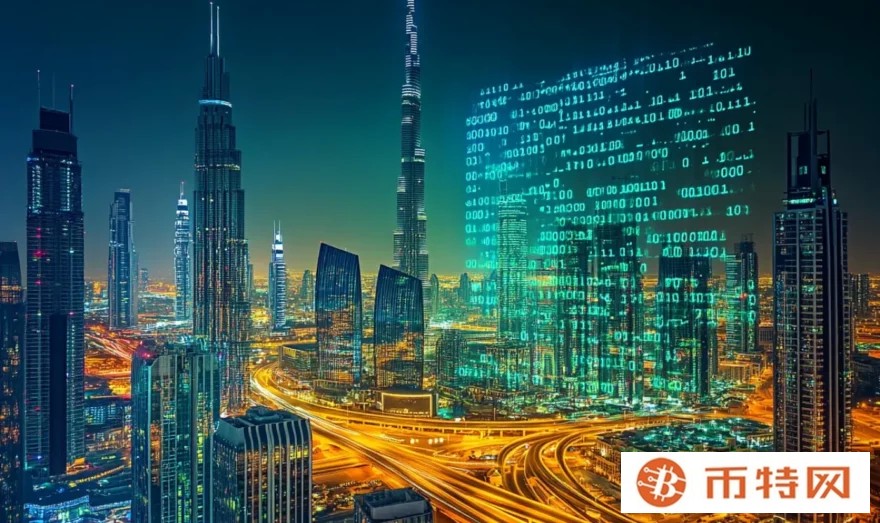
Disclosure: The views and opinions expressed here belong solely to the author and do not represent the views and opinions of crypto.news’ editorial.
Dubai isn’t just adopting web3—it’s engineering the environment where it will thrive. Through a unique convergence of regulatory clarity, public-private collaboration, and a relentless drive for innovation, the Emirate is rapidly positioning itself as one of the most forward-thinking jurisdictions for digital assets and tokenized finance.
Through innovation-friendly regulatory standards and the government’s bold policy strategies, such a pro-enterprise ecosystem ensures economic sustainability, financial security, investor protection, cross-border trades, robust risk mitigation mechanisms, and industry-leading collaborations.
As the city hosts global events like Token2049 and fosters industry-shaping initiatives like the ZIGChain Summit, it’s clear that the foundations being laid here will define the next generation of global financial infrastructure.
The groundwork of Dubai’s progressive culture of innovation and pro-market stance began with initiatives like the Dubai Blockchain Strategy in 2016. Since then, programs like the Dubai Metaverse Strategy and Dubai Economic Agenda D33 aim to create over 40,000 digital-native jobs and contribute $4 billion to the economy.
To do so, Dubai has built a compliant digital economy by establishing regulatory agencies like the Virtual Assets Regulatory Authority. It has also built over 20 Free Zone Authorities, which support innovation-driven entrepreneurship through 100% foreign ownership, capital repatriation, and easy business setup.
One of Dubai’s premier purpose-built financial free zones, the Dubai International Financial Centre, has its independent regulator, the Dubai Financial Services Authority. The DFSA is launching the Tokenization Regulatory Sandbox, a unique initiative to support companies exploring tokenized investment products and services within the DIFC.
The Sandbox will include two stages. First, firms have to express interest in developing tokenized products. Second, selected firms will join the Innovation Testing License Tokenization Cohort to test their products within a controlled regulatory environment.
The Regulatory Sandbox demonstrates DFSA’s commitment to supporting compliant financial products through the ITL Tokenization Cohort. The firms will get regulatory guidance and clarity on DFIC’s tokenization rules, operate in live market situations, and get a full DFIC license.
Such initiatives support innovation, build confidence among industry stakeholders, and attract legacy financial players into the digital asset industry.
Dubai’s traditional financial institutions have collaborated with digital asset companies to integrate the two sectors and offer unique financial solutions. For instance, the UAE’s Dubai Islamic Bank partnered with Crypto.com in December 2024 to promote Crypto.com’s app and card via DIB’s payment channels.
The partnership will offer reward-based campaigns for DIB customers and ensure seamless crypto payments through DIB’s existing infrastructure. Further, users can fund their Crypto.com app with local fiat currency and explore real-world asset tokenization like Islamic sukuks, a Sharia law-compliant financial certificate. Musabbah Al Qaizi, Chief Digital Officer at Dubai Islamic Bank, explained:
“This collaboration…sets new-age standards for Sharia-compliant financial solutions, providing our customers with unparalleled security, efficiency, and flexibility. It empowers us to redefine the integration between Islamic banking and digital asset management.â€
Crypto.com has also acquired the Abu Dhabi Global Market, regulated Orion Principles Limited, launched the AED Wallet for seamless deposits and withdrawals in local currency, and collaborated with Mastercard to issue prepaid debit cards.
Besides such pro-crypto collaborations from private enterprises, the government of Dubai has undertaken several initiatives to boost the tokenized economy. These initiatives help onboard more people into the digital asset industry.
Dubai’s real estate agency, the Dubai Land Department, launched a real estate tokenization pilot program in March 2025. The program uses blockchain to tokenize property title deeds. The project was developed with VARA and the Dubai Future Foundation through Sandbox Real Estate to make it the Middle East’s first on-chain property registration authority.
Such a governmental push reflects Dubai’s ambition to emerge as a global technology and financial hub by participating in trends like RWA tokenization. DLD has projected that the tokenized real estate market could reach $16 billion by 2023, accounting for 7% of the city’s property transactions.
Blockchain-based RWA tokenization enables fractional ownership and smooth property deed transfers, reducing investors’ entry barriers and enhancing market liquidity. This offers a better ownership model for property purchases, increasing transparency and easing operational hurdles in real estate projects. His Excellency Eng. Marwan Ahmed Bin Ghalita, Director General of Dubai Land Department, elaborated:Â
“By converting real estate assets into digital tokens recorded on blockchain technology, tokenisation simplifies and enhances buying, selling, and investment processes. This aligns perfectly with Dubai Land Department’s vision to achieve global leadership in real estate investment, leverage technology to develop innovative real estate products, and foster an ecosystem that supports real estate innovation.â€
No wonder Dubai offers a dynamic and expanding ecosystem for democratizing investment opportunities, aligning with its vision of a Smart City innovation hub.
Dubai is rapidly emerging as a global web3 powerhouse with its future-proof regulations, innovation-friendly governance structure, strategic global location, state-of-the-art infrastructure, and outstanding logistics. The city’s innovation journey isn’t limited to policy—it’s driven by community. Events like Token2049 Dubai have become convergence points for founders, investors, and institutions exploring the future of decentralized tech. This year, over 300 side events turned the city into a live innovation lab.
The momentum built in Dubai is no accident. It’s the result of an ecosystem purpose-built for scale, compliance, and impact. And for those building the next chapter of global finance—Dubai is not a destination. It’s the launchpad.